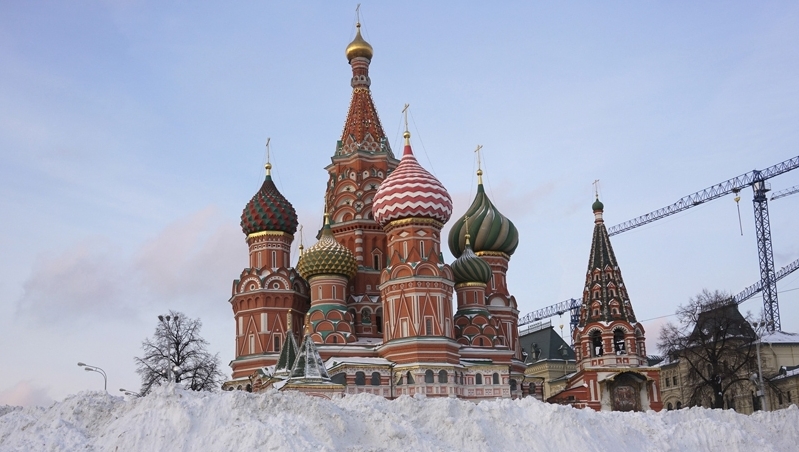
Representatives of several U.S.-based religious denominations rooted in evangelizing and missionary work are choosing to defy the new "Yarovaya laws" laws in Russia that would ban them from proselytizing. The package of laws, billed as anti-terrorism measures, was passed by the Russian Duma, or parliament, on June 24 and signed by Russian President Vladimir Putin on July 7. Leading Russian human rights activists said authorities used an air disaster -- the October bombing of a Russian passenger jet -- as a pretext for an assault on basic freedoms, including religion.
These new Russian laws make it illegal to preach, proselytize or distribute religious materials outside of specially designated places. The laws also give Russian government officials wide-ranging leeway to monitor and record electronic messages and phone calls, reports Religion News Service.
Religious organizations directly affected by the new laws are the Church of Jesus Christ of Latter-day Saints, International Society for Krishna Consciousness, Jehovah's Witnesses, Seventh-day Adventists and other Protestant organizations with Baptist, Pentecostal and independent Christian roots.
As reported by The Gospel Herald on July 9, Christians in Russia took the news about the extreme laws very hard: Religious, New Persecution Law in Russia: Thousands of Church Members Fast, Pray
Members of the U.S. Commission on International Religious Freedom, a bipartisan government panel that makes policy suggestions, also damned the new laws.
"These deeply flawed anti-terrorism measures will buttress the Russian government's war against human rights and religious freedom," Thomas Reese, a Jesuit priest and chair of the commission, said after the measures were passed. "They will make it easier for Russian authorities to repress religious communities, stifle peaceful dissent, and detain and imprison people."
The new laws require a government permit to engage in proselytizing activities and ban those activities outside any registered religious organization, such as a church. Russia has numerous "house churches," which are groups that meet in people's homes; those are now illegal under the new law.
Violations of the new laws will result in fines of $780 for an individual, and up to $15,000 for an organization. Breaches also can lead to deportation.
A spokesman for the Latter-day Saints church said there were no plans to recall their approximately 30 missionaries currently assigned in seven Russian locations.
Members of the Jehovah's Witnesses have 2,500 congregations in Russia. The Russian government has shut down several Witness organizations since the beginning of the year, most recently closing the church's administrative center in St. Petersburg. The new law effectively bans the Witnesses' practice of going door-to-door to preach and hand out tracts. Witness officials have called the Russian government's focus on its activities "a deliberate misapplication of Russia's law on extremist activity."
Tanya Lokshina, Russia program director for Human Rights Watch, called the bill "a set of legislative amendments that severely undermine freedom of expression, freedom of conscience and the right to privacy."
Only about 1 percent of the Russian population is Protestant; the majority religion is Russian Orthodox Christian, according to Religion News Service.
"The Russian Orthodox church is part of a bulwark of Russian nationalism stirred up by Vladimir Putin," David Aikman, author of "One Nation Without God," told Christianity Today. "Everything that undermines that action is a real threat, whether that's evangelical Protestant missionaries or anything else."






